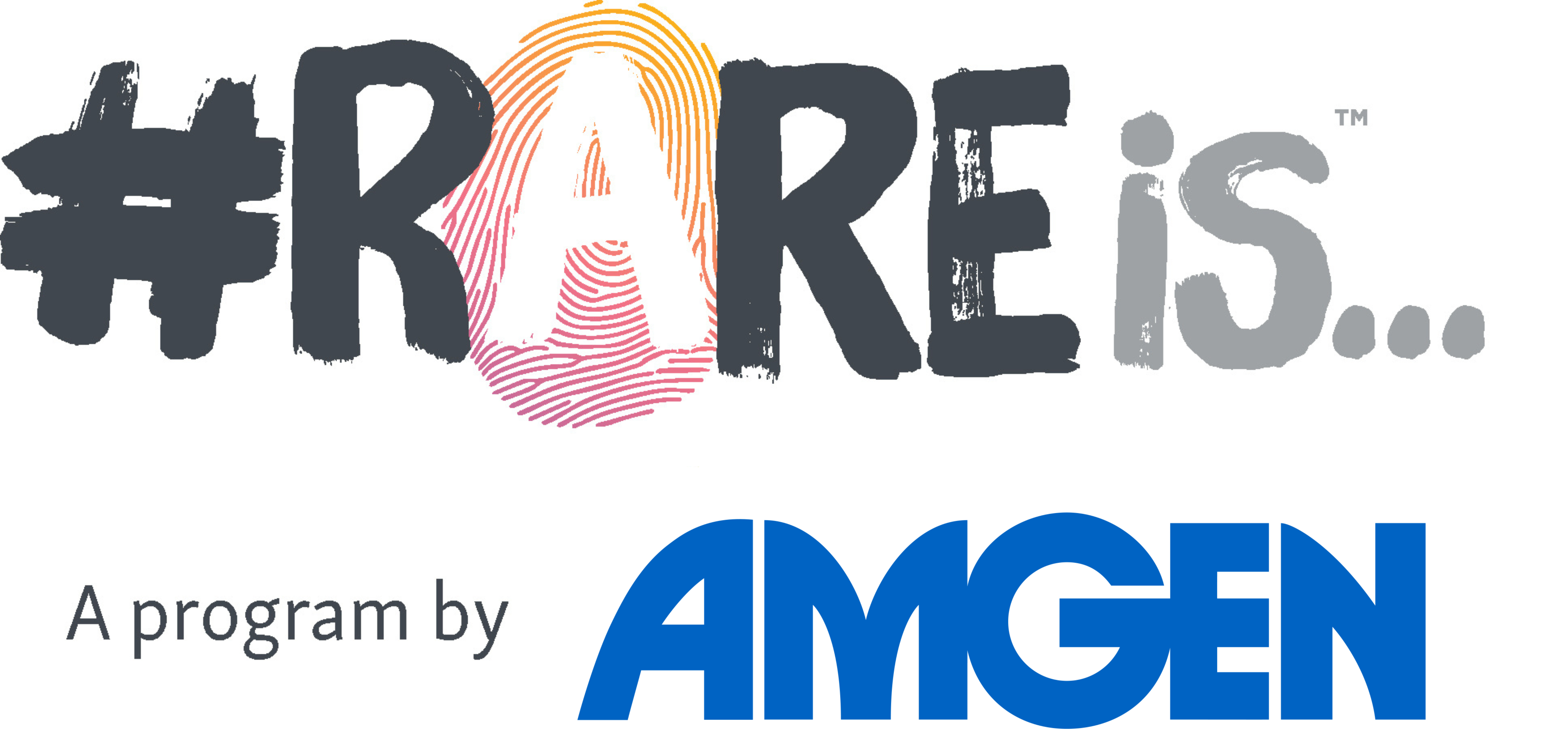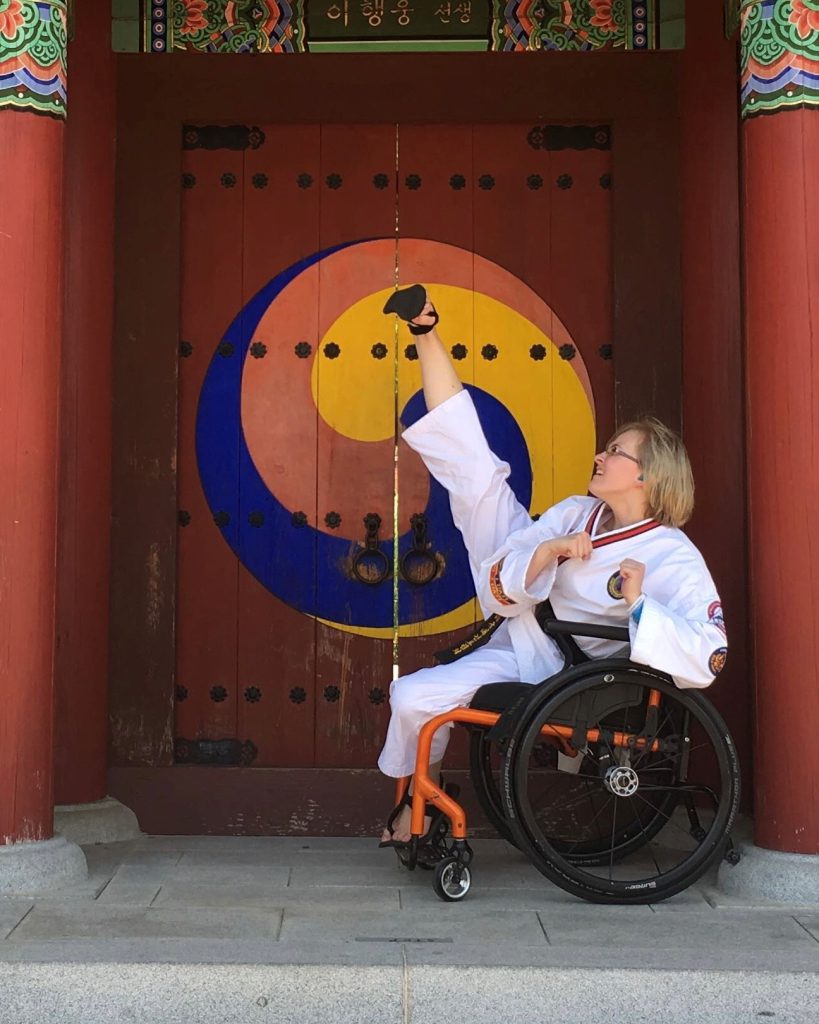About Meghan
Meghan Bayer, 2022 #RAREis Scholarship recipient, lives with pediatric-onset stiff-person syndrome, which means she deals with persistent muscle spasms, dislocated ankles and an inability to move her toes voluntarily. Severe breathing difficulties caused by the muscle spasms have required her to be on a ventilator dozens of times and have impaired her stomach and intestines to the point she requires a feeding tube.
She also has hypermobile Ehlers-Danlos Syndrome, which causes collagen deficiencies, leading to joint dislocations, frequent sprains, fatigue and organ dysfunction.
Then there’s mast cell activation syndrome, which causes severe allergic reactions to things like hot or chlorinated water, sweat, heat and cold. She’s also hypersensitive or allergic to smoke, fragrances and several medications.
And on top of all that, she lives with Type 1 diabetes, autoimmune inner ear disease, tethered cord syndrome, autoimmune polyglandular syndrome (Type 1), complex regional pain syndrome (Type 1) and about three dozen other diseases with varying degrees of rarity.
None of it has stopped her from maintaining a full and active life. Thanks to her own determination, plus cochlear implants, the feeding tube, an insulin pump and an orange wheelchair she has named “Nemo,” Meghan now keeps up a schedule that would be considered more than a full slate for anyone: master’s degree classes and internships, disability rights advocacy, speaking engagements and even competitive taekwondo.
Her engine simply doesn’t stop. And for the last year, a #RAREis Scholarship made possible by Horizon Therapeutics has been part of the fuel.
Bridging the Gaps
Meghan is a former basic EMT and outdoor emergency care technician and is currently in her third year of a master’s program in social work at Winthrop University with a goal of earning a Ph.D. in health policy so she can support others with rare diseases and disabilities.
“The higher up you go in your education, the fewer scholarships there are, so I was so incredibly excited that I wouldn’t have to worry about any grad school expenses for a whole semester. This covered everything – tuition, books and expenses. I even had some money left to roll over into the spring semester.”
She takes seven-week accelerated courses, while also gaining real-world practical experience. On Tuesdays and Thursdays, she works 11-hour days as the social work intern for Aiken Regional Medical Centers, conducting screenings and assessments, helping to facilitate patients’ communications with their providers and assessing what services they might need after discharge.
“I feel like all of my own experiences with doctors, hospitals and medications have given me special empathy for what patients are going through,” she said. “I’ve been on the other side hundreds of times, and I know what it feels like to be in their shoes. There’s a look I get sometimes from patients – more, I think, than my able-bodied or walking peers get – that says, ‘Oh, she’s been through something. She understands.’”
Bridging the gaps between people with and without disabilities is an area where she’s especially strong. She’s a nine-time world champion and third-degree black belt through the American Taekwondo Association, competing (and winning) in form and weapon demonstrations and sparring competitions against people who have full use of their legs. She once taught a taekwondo class for children, many of who were initially nervous about her wheelchair.
“They wouldn’t come close enough to see the moves I was demonstrating,” she said. “And that’s when Nemo was named. I thought if I gave my wheelchair a name, it would make it more approachable. ‘Finding Nemo’ and ‘Finding Dory’ were big with kids at the time, and my wheelchair is orange, so it became Nemo – the friendly clownfish, not the intimidating orange wheelchair. And the name has stuck. I find myself saying things like, ‘Nemo needs air in his tires.’”
Making a Difference
In late February, Meghan (and Nemo) traveled to Washington, D.C., for Rare Disease Week on Capitol Hill. There, she met other #RAREis scholarship recipients, attended the National Institute of Health’s rare disease conference and spent time with her elected representatives to advocate for rare disease legislation and funding.
She captured the events and emotions of the week on her blog for Meg’s Miracles, the nonprofit she started in 2020, which has raised more than $12,500 to date for the Stiff Person Syndrome Center at Johns Hopkins University.
“Ever since I went to Washington, I’ve started getting offers to share my story and speak about disability advocacy. I spoke in March at the 30th Annual University of South Carolina School of Medicine Assistive Technology Expo, and later this year, I’ll also be speaking at the Statehouse for South Carolina Advocacy Day, the South Carolina Youth Leadership Forum and the EveryLife Foundation. What I want for my future is what I’m doing right now. In three to five years, I want to start my Ph.D. to gain more skills and tools to keep making a difference.”
“I’m so thankful for this scholarship,” she said. “With social work, two days out of the week, I get to be the provider. The rest of the time, I’m the patient. This support allows me to put my life experiences to good use, connecting patients to community resources and advocating so people like me can lead better lives.
About the #RAREis Scholarship Fund
Launched in 2020 in partnership with the EveryLife Foundation for Rare Diseases, the #RAREis Scholarship Fund provides educational support for adults living with rare diseases – an enrichment of their lives as they manage the unique challenges of their conditions. More than 175 scholarships have been granted by the fund to date for full- or part-time undergraduate or graduate studies at colleges, universities and vocational schools. Applications for the next batch of awards – 70 at $5,000 each for U.S. recipients age 17 and older – are being accepted through April 13.

